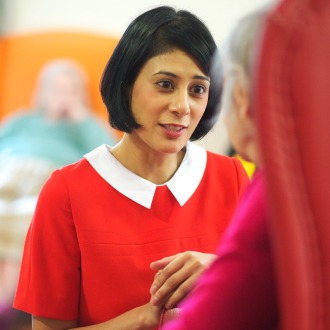GP practice paid to divert lonely patients to charities

A CCG has awarded £23,000 to a GP practice to pay a full-time staff member to divert patients who are ‘wasting’ GP appointments to local charities instead, Pulse has learned.
The Mission Practice in Bethnal Green in east London has already partly self-funded the role on a part-time basis for one year but is now able to hire the ‘community services networker’ on a full-time basis after being handed the funding from NHS Tower Hamlets CCG.
The practice estimates that it sees 500 patients a year – some of whom come more than once a month – who do not actually require medical care but are having other problems relating to loneliness and social isolation, debt or housing issues.
In total, the scheme has cost the practice £8,000 for the first year, when the service was available 16 hours a week, which was also helped by a £4,000 charitable grant from a local church. The practice will now add a further £5,000 to fund the scheme full-time this year alongside the £23,000 CCG investment.
Richard Walne, a former NHS Foundation Trust director and now business development director for OneMedicalGroup was asked by the GP practice to provide strategic business advice for the project. He estimated that across Tower Hamlets there may be 15,000 patients a year that do not need a GP appointment but still book several.
He added: ‘This has enabled the practice to have a third sector coordinator that frees up GP time. The person will care for all the people that make appointments with a GP when they are not really needed, in the sense that they don’t have a medical problem. They are very often people who have reached the end of the line and are very desperate for some kind of help, but the kind of help that can be provided better by the multiplicity of local charities that are around.’
‘What we can do is to direct people to use those charities, to use those third-sector organisations that are best equipped to deal with the problems that people have, ranging from debt issues, mental health issues, disability issues and so on where they are not getting the support they need from the local authorities.
‘It is picking up all those people who are really wasting clinical time and making sure that they get looked after by people who are better qualified to deal with their problems.’
Dr Louise Vaughan, a GP at the practice, said the initiative was hopefully temporary so that patients would know in the future where to go for help in the community instead of thier GP practice.
She said: ‘The lady we have hired has been able to see these people one on one for 20 minute appointments to help them work out what services would be most appropriate for those people, and even accompanying them sometimes, so it has been really successful.’
‘People go to see a GP now because when 150 years ago they might have gone to see their priest, when people have problems they go to see the doctor because there isn’t really anyone else who is socially appropriate to see. Especially in London where the biggest issue people have is loneliness. There is a huge amount of social isolation and not a lot in terms of a community.
‘We know as GPs that people turn up and say “I’ve got a headache” or whatever, but that is not the underlying problem and some people are just struggling with life.’
‘I completely agree we shouldn’t be seeing those people if we are just being doctors, but they are coming to us so it is our responsibility to make sure that their needs are met. In the long-term we want to see them going to community services first and us second.’









